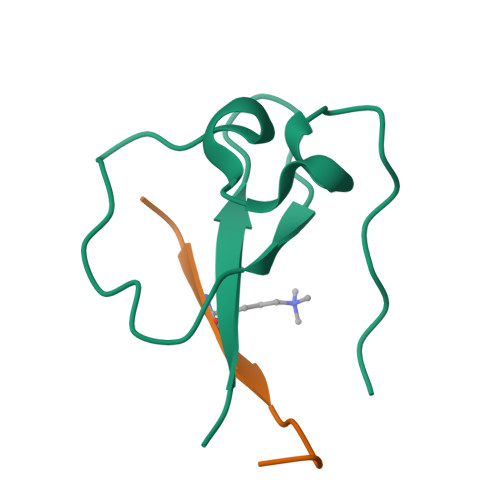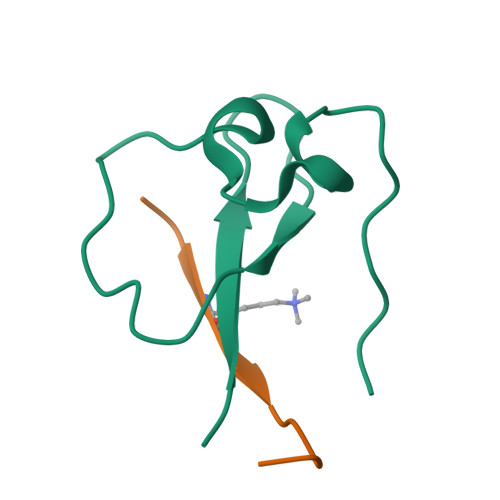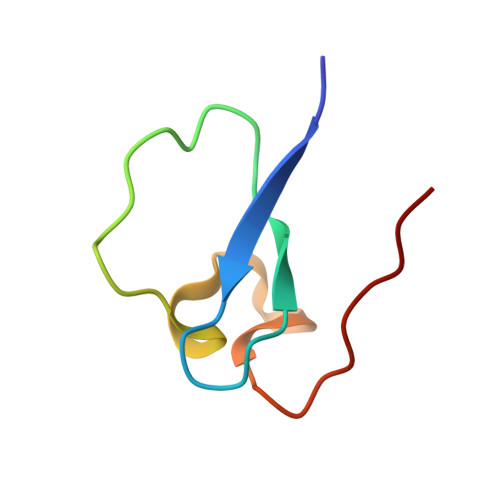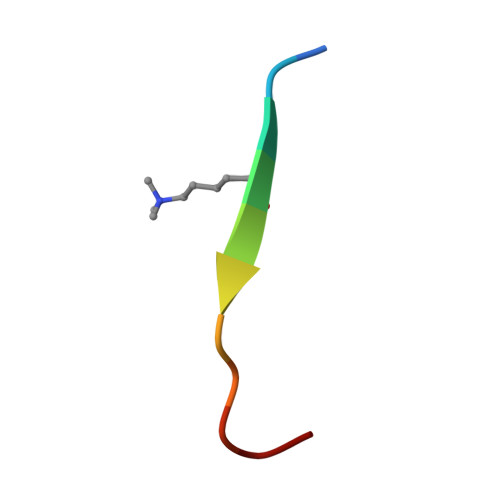Multivalent Chromatin Engagement and Inter-domain Crosstalk Regulate MORC3 ATPase.
Andrews, F.H., Tong, Q., Sullivan, K.D., Cornett, E.M., Zhang, Y., Ali, M., Ahn, J., Pandey, A., Guo, A.H., Strahl, B.D., Costello, J.C., Espinosa, J.M., Rothbart, S.B., Kutateladze, T.G.(2016) Cell Rep 16: 3195-3207
- PubMed: 27653685
- DOI: https://doi.org/10.1016/j.celrep.2016.08.050
- Primary Citation of Related Structures:
5SVI, 5SVX, 5SVY - PubMed Abstract:
MORC3 is linked to inflammatory myopathies and cancer; however, the precise role of MORC3 in normal cell physiology and disease remains poorly understood. Here, we present detailed genetic, biochemical, and structural analyses of MORC3. We demonstrate that MORC3 is significantly upregulated in Down syndrome and that genetic abnormalities in MORC3 are associated with cancer. The CW domain of MORC3 binds to the methylated histone H3K4 tail, and this interaction is essential for recruitment of MORC3 to chromatin and accumulation in nuclear bodies. We show that MORC3 possesses intrinsic ATPase activity that requires DNA, but it is negatively regulated by the CW domain, which interacts with the ATPase domain. Natively linked CW impedes binding of the ATPase domain to DNA, resulting in a decrease in the DNA-stimulated enzymatic activity. Collectively, our studies provide a molecular framework detailing MORC3 functions and suggest that its modulation may contribute to human disease.
Organizational Affiliation:
Department of Pharmacology, University of Colorado School of Medicine, Aurora, CO 80045, USA.



















